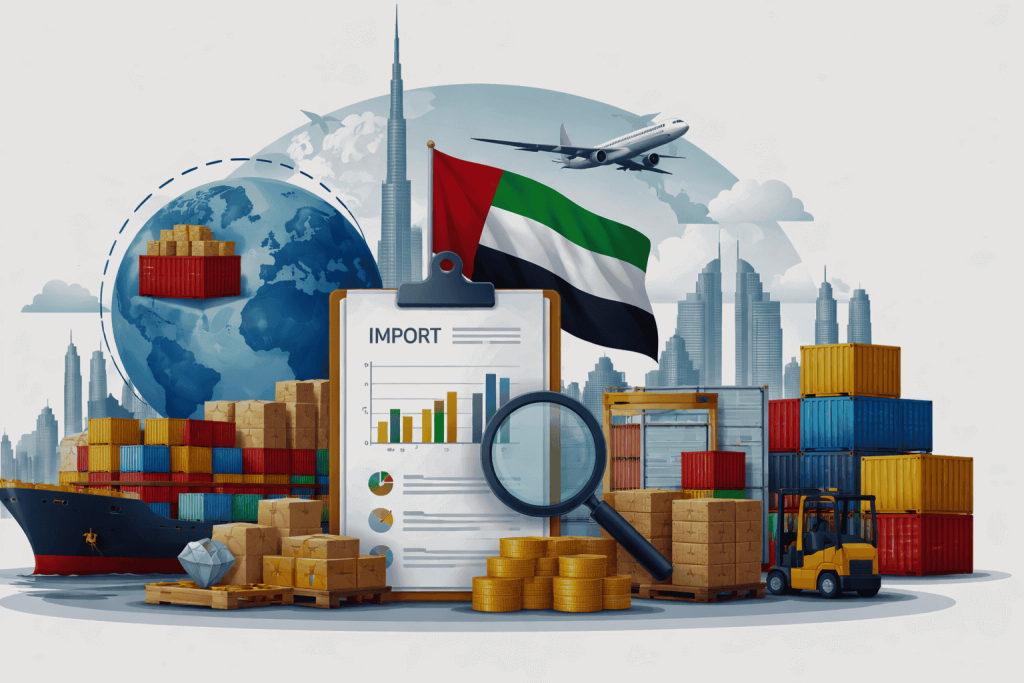Introduction to Sustainability in Global Trade
The import-export business plays a crucial role in the global economy, facilitating the exchange of goods and services across borders.
However, with the increasing awareness of environmental issues and the implications of traditional trade practices, the concept of sustainability within global trade has gained significant traction in recent years.
Sustainability in the import-export sector refers to the implementation of practices that not only meet the economic needs of today but also consider the environmental and social impacts for future generations.
Currently, the import-export industry faces various challenges, including greenhouse gas emissions, waste generation, and resource depletion.
These challenges have prompted international organizations, governments, and businesses to scrutinize their supply chains and seek more eco-friendly alternatives.
Sustainable practices within international trade encompass a wide range of activities, from reducing carbon footprints during transportation to opting for renewable resources in production processes.
In light of the evolving landscape of global trade, it is imperative that stakeholders in the import-export business prioritize sustainability.
By doing so, they can enhance their competitiveness while contributing positively to the environment and society.
This shift towards more eco-conscious operations is not just beneficial but essential for the longevity and reputation of businesses in the future of global trade.
The Environmental Impact of Import Export Activities
The import export business, a critical component of the global economy, significantly contributes to environmental challenges.
Traditional import/export activities, particularly in shipping and logistics, are major sources of carbon emissions.
The transportation of goods across nations typically involves the use of vessels, trucks, and airplanes, all of which emit greenhouse gases into the atmosphere.
In fact, the International Maritime Organization estimates that shipping alone is responsible for approximately 2.5% of global carbon emissions.
This figure highlights the pressing need for a shift toward more sustainable practices within the industry.
Moreover, pollution is another consequential outcome of import/export logistics. Ports and shipping lanes often suffer from increased emissions, which not only affect air quality but also contribute to broader environmental issues such as acid rain and the degradation of marine ecosystems.
Additionally, many shipping routes pass through ecologically sensitive areas, where the disturbance from increased traffic can disrupt local wildlife and contribute to habitat loss.
As such, stakeholders in the import export industry are recognizing the necessity of implementing solutions to mitigate these impacts.
Resource depletion is yet another challenging aspect associated with traditional import/export operations.
The demand for raw materials spurred by global trade often leads to over-extraction and misuse of natural resources.
This contributes to deforestation, soil degradation, and biodiversity loss, leaving long-term repercussions on ecosystems that are vital for sustaining life on Earth.
In this context, it is essential for businesses involved in import/export activities to adopt sustainable methods, including optimizing transportation routes, utilizing eco-friendly packaging, and collaborating with green logistics providers.
By re-evaluating their operations with environmental conservation in mind, industry players can contribute positively to the planet’s health.
Benefits of Adopting Sustainable Practices
In recent years, the importance of sustainability in the import export business has become increasingly vital.
Companies that adopt sustainable practices can reap a range of benefits that not only enhance their operations but also contribute positively to the global ecological landscape.
One of the most significant advantages is cost savings through energy efficiency. Implementing energy-efficient technologies and practices can lead to substantial reductions in operational costs.
For instance, utilizing green logistics, such as optimizing transportation routes or switching to eco-friendly packaging, can significantly lower fuel consumption and related expenses.
Furthermore, a strong commitment to sustainability can bolster a company’s brand reputation.
As consumers become more environmentally aware, they tend to favor businesses that demonstrate responsibility toward ecological preservation.
Import export companies that actively promote their sustainable practices often see improved customer loyalty and satisfaction.
This enhanced brand image not only attracts consumers but can also facilitate partnerships with like-minded businesses, further solidifying a company’s position within the industry.
Another critical aspect of adopting sustainable practices is compliance with regulations.
Governments worldwide are increasingly imposing stringent rules regarding environmental impact, and aligning with these regulations is crucial for the long-term viability of any import export business.
By proactively adopting eco-friendly initiatives, companies can future-proof their operations and avoid potential legal pitfalls associated with non-compliance.
Lastly, adopting sustainable practices enables businesses to attract environmentally-conscious consumers. Today’s market reflects a growing demand for products that are ethically sourced and produced.
By aligning their operations with these consumer values, import export companies can tap into a lucrative market segment, leading to increased sales and profitability.
Eco-Friendly Shipping Options
As sustainability becomes increasingly vital in the import export business, the exploration of eco-friendly shipping options is essential for businesses aiming to reduce their environmental impact.
Among the most promising alternatives is carbon-neutral shipping.
This approach involves calculating the carbon footprint generated during transportation and investing in projects that reduce an equivalent amount of emissions elsewhere.
Companies can partner with organizations that focus on reforestation or renewable energy projects to offset their carbon outputs, fostering an eco-conscious reputation while still meeting customer demands.
Another important aspect of sustainable logistics involves utilizing alternative fuels.
Transport modes that employ renewable energy sources, such as electric trucks or vessels powered by biofuels, are gaining traction.
These methods not only diminish reliance on fossil fuels but also contribute to significant reductions in greenhouse gas emissions.
Businesses can invest in vehicles or contract transport service providers that specialize in clean technology, thus aligning their operations with modern sustainability goals.
Technological advancements in logistics also play a crucial role in promoting eco-friendly practices within the import export sector.
Innovations such as route optimization software and automated inventory management systems can help streamline operations. By improving efficiency, businesses can reduce unnecessary fuel consumption and minimize waste.
The adoption of digital documentation and electronic communication also lessens reliance on paper, contributing to a lesser environmental footprint.
Import export companies have many avenues to explore when seeking eco-friendly shipping options.
By embracing carbon-neutral shipping, alternative fuels, and technological advancements, businesses not only contribute to sustainable practices but also position themselves as responsible players in a progressively conscientious market.
The integration of such eco-friendly practices enhances the potential for a greener future in the import export business.
Sustainable Packaging Solutions
In recent years, the importance of sustainable packaging solutions within the import export business has gained significant attention.
As global awareness of environmental issues rises, businesses are realizing that effective packaging can dramatically reduce waste and mitigate the negative impacts associated with traditional packaging methods.
By incorporating sustainable practices, companies not only contribute to environmental conservation but can also enhance their brand reputation and appeal to environmentally-conscious consumers.
One critical aspect of sustainable packaging is the need to minimize packaging waste.
The import export business often relies on materials that are not only harmful to the environment but also result in excessive waste.
Transitioning to eco-friendly alternatives, such as biodegradable materials, recycled cardboard, and reusable containers, can lead to remarkable reductions in waste generation.
For example, many companies are now opting for compostable packaging solutions that decompose naturally, hence lessening their carbon footprint.
Several materials have emerged as viable options in the sustainable packaging domain. Bioplastics, made from renewable resources, represent a promising shift away from petroleum-based plastics.
Additionally, materials like corrugated cardboard, which is widely recyclable, and innovative solutions such as mushroom packaging and plant-based foams are gaining traction.
The import export sector is also seeing a growing trend in the use of reusable pallets and containers, which not only reduce waste but also cut costs associated with single-use packaging.
Real-world examples illustrate the successful integration of sustainable packaging within the import export business.
Companies like Unilever and Dell are at the forefront, adopting practices that not only fulfill their packaging needs but also align with their sustainability goals.
By implementing innovative packaging solutions, these companies demonstrate that it is indeed possible to strike a balance between business efficiency and environmental responsibility.
As sustainability continues to define industry standards, adopting such practices is becoming increasingly essential for success in the global marketplace.
Regulatory Framework and Standards
The import export business operates within a complex web of regulations and standards aimed at facilitating sustainable trade practices.
Various international agreements play a pivotal role in shaping these regulations, ensuring that environmental considerations are integral to trade activities.
Prominent among these agreements is the Paris Agreement, which commits countries to limit global warming and emphasizes the need for sustainable practices in all economic sectors, including international trade.
Furthermore, the World Trade Organization (WTO) has introduced guidelines that encourage member nations to adopt measures promoting sustainability in trade.
These guidelines encompass efforts to reduce trade-related emissions and promote the use of eco-friendly materials.
In addition to international agreements, regional trade agreements often include clauses that specifically address environmental concerns, compelling participating nations to align their import export operations with certain sustainability standards.
Government policies also play a crucial role in fostering sustainability in the import export sector.
Incentives, such as tax breaks and grants for sustainable practices, can encourage businesses to adopt greener measures.
Additionally, regulations mandating environmental impact assessments for specific imports and exports ensure that companies consider the environmental consequences of their operations.
Collectively, these regulatory frameworks and standards are instrumental in establishing a sustainable foundation for the future of the import export business.
Case Studies of Successful Sustainable Businesses
The import export business has seen a notable shift towards sustainability, with various companies successfully integrating eco-friendly practices into their operations.
One remarkable example is Uncommon Goods, a U.S.-based online retailer. This company specializes in unique gifts and has adopted several sustainable practices in its supply chain.
For instance, it collaborates with artisans from around the world, ensuring that the materials sourced for its products are made from recycled or sustainably sourced materials.
Additionally, Uncommon Goods maintains a commitment to fair trade, ensuring ethical practices among its suppliers.
Their strategic approach not only attracts environmentally conscious consumers but also encourages other import/export businesses to adopt similar practices.
Another inspiring case is that of Fairphone, which focuses on creating sustainable electronic devices.
The company sources materials from conflict-free zones and emphasizes a circular economy by designing phones that are easy to repair and recycle.
This commitment to sustainability has proven beneficial, both in terms of customer loyalty and brand reputation.
Fairphone’s success demonstrates how integrating sustainability can enhance the overall value proposition in the competitive import/export sector.
On a different scale, IKEA, a global furniture retailer, is making significant strides toward sustainability within its import and export operations.
The company has committed to sourcing all of its materials from renewable or recycled sources by 2030.
IKEA’s implementation of a circular supply chain has transformed how they design products, manage logistics, and handle waste.
Such initiatives not only reduce environmental impact but also result in cost savings and increased customer satisfaction, establishing them as a role model in the import export business.
These case studies showcase that sustainability in the import/export field is both feasible and beneficial.
By learning from the strategies, challenges, and successful outcomes of these companies, others in the sector may find inspiration and guidance for their own sustainable practices.
Challenges in Implementing Sustainable Practices
The import export business, while lucrative, faces a myriad of challenges when attempting to implement sustainable practices. One of the primary obstacles is the cost associated with adopting eco-friendly methods.
Transitioning to sustainable practices often requires significant initial investments, such as upgrading machinery or sourcing materials that meet environmental standards.
Many businesses, particularly small and medium-sized enterprises, may find these upfront costs prohibitive, opting instead for the cheaper, more traditional methods of operation.
This financial burden creates a barrier to sustainability that can discourage companies from making necessary changes.

Furthermore, the complexities inherent in global supply chains present additional hurdles.
Import export businesses often rely on a vast network of suppliers, distributors, and logistics providers, all of whom must also align with sustainable practices for a cohesive approach.
When stakeholders in the supply chain are not equally committed to sustainability, it becomes challenging to implement uniform practices.
An inconsistency in standards can lead to complications that diminish the overall effectiveness of sustainable efforts, as inconsistencies may manifest in transportation emissions, waste management, and labor practices.
Resistance to change is another significant factor that hinders the adoption of sustainable practices within the import export sector.
Established companies may be set in their ways, driven by longstanding habits or fear of disrupting their existing workflows.
The inertia associated with age-old business models can create an apprehensive culture where innovation is viewed skeptically.
Additionally, there exists a general lack of education surrounding the benefits of sustainability, which can perpetuate misconceptions that eco-friendly initiatives are not feasible or beneficial.
The convergence of these challenges indicates that a multi-faceted approach is necessary for businesses looking to integrate sustainability into their operations.
Overcoming financial, logistical, cultural, and educational barriers will be key to driving meaningful change within the import export industry.
Future Trends in Sustainable Trade
The import export business is witnessing a transformative shift towards sustainability, driven by several emerging trends.
One significant factor is the rapid advancement of technology, which facilitates more efficient logistics and reduces carbon footprints.
For instance, the implementation of artificial intelligence and machine learning in supply chain management is enabling businesses to optimize routes, reduce waste, and enhance overall operational efficiency.
This trend not only minimizes environmental impact but also translates to cost savings for import/export companies.
In addition to technological innovations, changes in consumer behavior are playing a crucial role in shaping sustainable trade practices.
Modern consumers are increasingly prioritizing eco-friendly products and services, prompting businesses within the import export business to adapt accordingly.
Sustainable sourcing, transparent supply chains, and ethical labor practices have become central to attracting environmentally conscious buyers
. Consequently, companies are focusing on sustainable certifications and eco-labels that signify a commitment to responsible trade practices.
Moreover, potential shifts in policy are expected to drive the import/export business towards a more sustainable future.
Governments worldwide are introducing regulations that promote sustainability and environmental stewardship.
Initiatives such as carbon taxes and incentives for sustainable practices are creating an environment where businesses are not only encouraged but required to adopt greener methods.
Adapting to these regulatory changes will be vital for all companies engaged in international trade, as failure to comply may hinder market access and competitiveness.
As the landscape of global commerce evolves, the integration of advanced technology, shifting consumer preferences, and changing policy frameworks are set to redefine the import export business towards sustainability.
Staying ahead of these trends will be essential for businesses aiming to thrive while contributing to the health of our planet.






No comment yet, add your voice below!